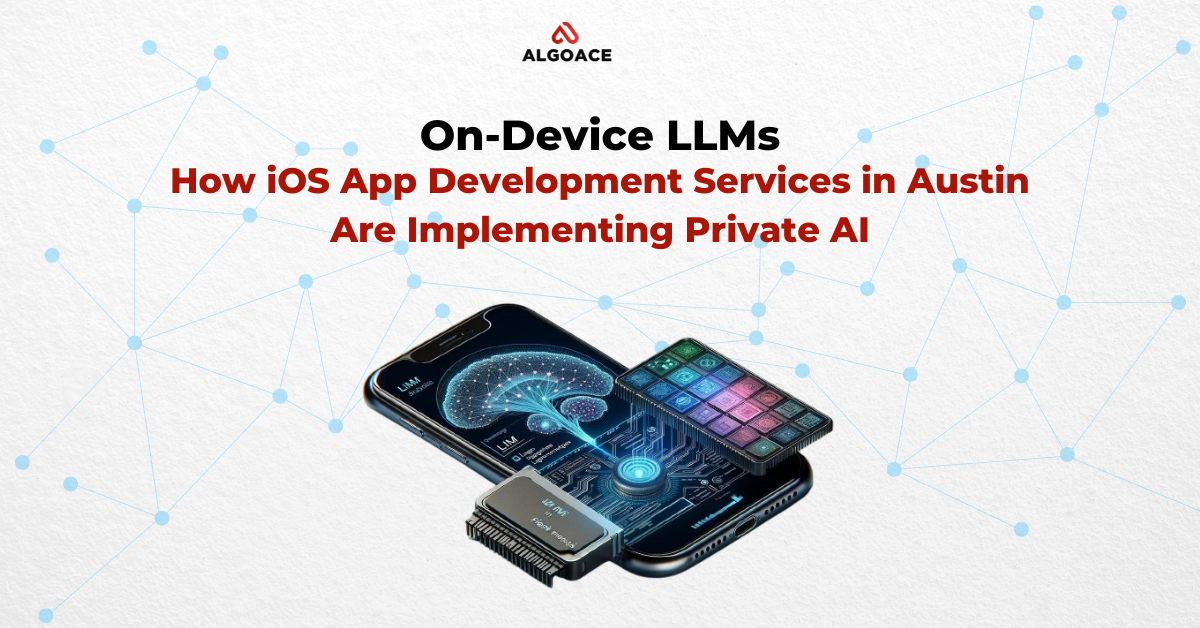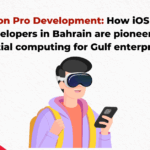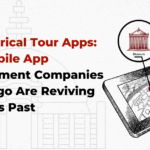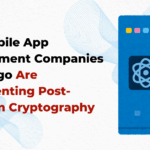
In the constantly changing landscape of mobile apps, artificial intelligence (AI) has emerged as a key element in improving user interactions. The advent of Large Language Models (LLMs) on mobile platforms is elevating this innovation even further, particularly within the sphere of private AI. Unlike conventional cloud-based systems, on-device LLMs process information locally, ensuring quickness, efficiency, and most critically, user confidentiality.
As privacy laws tighten and users become more conscious of their data, iOS app development services in Austin are adopting on-device LLMs as a progressive solution. Let’s delve into how these sophisticated models are transforming mobile applications, why Austin serves as a center for such advancements, and how software development companies are adjusting to this thrilling technological evolution.
What Are On-Device LLMs?
Large Language Models, like GPT, are AI technologies that have been trained on extensive datasets to comprehend and produce human-like language. They can execute complex tasks such as:
- Text completion
- Summarization
- Sentiment analysis
- Natural language understanding
Historically, these models operated on powerful servers located in the cloud. However, innovations in mobile processors and model compression methods have made it feasible to implement scaled-down versions directly on devices.
On-Device vs. Cloud-Based LLMs
| Feature | On-Device LLMs | Cloud-Based LLMs |
|---|---|---|
| Privacy | High (local data processing) | Lower (data sent to servers) |
| Latency | Low (instant response) | High (dependent on internet) |
| Connectivity | Works offline | Requires internet |
| Data Ownership | User retains control | Data is shared with providers |
Why Private AI Matters
Private AI plays a crucial role in safeguarding user information by keeping confidential data stored on the device, thereby reducing privacy threats. It also enables quicker, offline processing, which improves the user experience while maintaining security.
User Privacy and Data Security
With laws such as GDPR, CCPA, and Apple’s App Tracking Transparency (ATT) framework, user data protection is an essential requirement rather than a choice. On-device LLMs tackle this issue by removing the necessity to transmit user information to external servers, resulting in apps that are more secure and focused on user privacy.
Real-Time Performance
As the model operates on the user’s device, it provides immediate responsiveness, which is vital for applications that demand quick feedback, such as chatbots, personal assistants, and language translation tools.
Austin: A Hotbed for iOS Innovation
Austin has quickly become a lively tech center, drawing in top talent and innovative companies that concentrate on iOS development. Its dynamic environment makes it an ideal location for groundbreaking mobile app solutions.
The Rise of iOS App Development Services in Austin
Austin, Texas, has evolved into a thriving tech ecosystem, attracting startups, major tech companies, and an expanding community of mobile developers. Similar to a New York Mobile App Development Company, Austin benefits from a dynamic atmosphere, access to high-caliber talent, and innovation-fostering policies, making the city a major hub for iOS app development services.
Factors contributing to Austin’s significance include:
- The presence of Apple, Google, and Meta campuses
- Strong research and development support from universities (University of Texas)
- A lively startup environment and availability of venture capital funding
Why Austin Is Leading in Private AI Integration
Businesses in Austin are quick to adopt advanced technologies, including on-device AI. Local software development companies recognize the value of data sovereignty and are incorporating LLMs into iOS applications with privacy-centric designs focused on users.
How iOS App Development Services in Austin Are Using On-Device LLMs
iOS application development services in Austin are utilizing on-device Large Language Models (LLMs) to produce quicker, smarter, and more privacy-conscious applications. By executing AI functions locally, these applications deliver improved user experiences while maintaining data security.
1. Integrating Apple’s Core ML and Create ML
Apple has simplified the integration of AI within iOS applications through Core ML and Create ML. Numerous development services in Austin are making use of these resources to incorporate LLMs that function seamlessly with Apple’s hardware and software.
Benefits:
- Fast performance optimized for Apple silicon (A17, M1, etc.)
- Built-in privacy and security
- Simple integration with Swift and SwiftUI
2. Using Open-Source LLMs Tailored for Mobile
Developers in Austin are increasingly utilizing open-source, lightweight LLMs such as:
- GPT4All
- Mistral
- LLaMA 3
- Phi-2
These models can be fine-tuned and optimized using methods like quantization and pruning to operate efficiently on mobile devices.
Use Cases:
- Personal AI assistants
- Health monitoring applications with conversational interfaces
- Smart journaling and writing applications
- Educational applications with adaptable tutoring
3. Enhancing App Features with Natural Language Understanding
By embedding on-device LLMs, iOS applications can gain a better understanding of user commands and contextual information. For example:
- Voice commands in smart home applications
- Context-aware responses in messaging applications
- Intent recognition for productivity applications
These functionalities enhance user experience and guarantee that sensitive commands remain on the device.
Case Study: Austin-Based HealthTech App with On-Device AI
A healthtech startup based in Austin has created a mental wellness application that utilizes a finely-tuned, on-device large language model (LLM). Users can interact with a virtual therapist, document their thoughts, and gain emotional insights—all without needing internet access.
Key Highlights:
- No information is transmitted to external servers, ensuring compliance with HIPAA regulations.
- Analysis of emotional tone is provided in real-time.
- Journaling prompts are suggested based on sentiment.
- Seamless integration with Apple HealthKit is achieved.
This example illustrates the tangible effects and business potential of implementing on-device AI in iOS applications.
Challenges Faced by iOS App Development Services in Austin
iOS app development companies in Austin encounter specific challenges when incorporating on-device LLMs, particularly in achieving a balance between model performance and device limitations. Managing resources such as battery life and keeping up with the fast-paced advancements in AI are persistent challenges for the best Chicago app development companies, as well as software development companies in the region.
1. Model Size and Performance
Despite optimization efforts, LLMs require significant resources. Developers need to find the right balance between model accuracy and the memory and CPU limitations of mobile devices.
2. Battery and Resource Management
Running LLMs on-device may consume a lot of battery and resources. Developers employ strategies like:
- Activating LLMs only when needed.
- Utilizing Apple’s Neural Engine.
- Intelligently scheduling background processes.
3. Keeping Up with Rapid Advancements
The LLM landscape is changing quickly. Constant effort is required for software development companies in Austin to stay abreast of new model architectures, quantization strategies, and updates to Apple’s SDK.
Best Practices for Implementing On-Device LLMs in iOS Apps
Incorporating on-device LLMs into iOS applications necessitates thoughtful optimization to achieve a balance between performance and user privacy. Adhering to established best practices guarantees that users experience efficient, responsive, and secure AI interactions.
✅ Optimize Models with Quantization
Minimize model size and enhance inference speed while maintaining accuracy levels.
✅ Use On-Demand Loading
Dynamically load and unload models to conserve system resources and memory.
✅ Employ Local Fine-Tuning
Enable personalization of models based on individual user behavior—all performed on the device. For example, allowing users to adjust writing style or customize preferences.
✅ Leverage Apple’s Ecosystem
Utilize Apple’s Core ML tools to integrate models for smooth compatibility and hardware acceleration.
The Future of Private AI in iOS Apps
The future of private AI within iOS applications is poised to transform user experiences by offering robust intelligence directly on devices. This method guarantees improved privacy, quicker responses, and uninterrupted offline functionality.
The Rise of “Edge AI” Applications
As an increasing number of devices become capable of AI functions, edge computing will pave the way for a new era of applications that are more efficient, intelligent, and secure. Anticipate the development of:
- Instantaneous language translation
- Personalized health monitoring systems
- Self-sufficient decision-making assistants
- Confidential recommendation systems
Growth Opportunities for Software Development Companies
The rise in demand for privacy-conscious applications is on the rise. Software development companies in Austin that offer LLM integration services will establish themselves as frontrunners in the forthcoming mobile AI landscape.
Why Businesses Should Choose iOS App Development Services in Austin
Businesses aiming to develop secure and intelligent applications should explore iOS app development services in Austin for multiple reasons:
- Access to developers who specialize in AI.
- A demonstrated history of creating scalable iOS solutions.
- A thorough understanding of privacy regulations.
- Creative implementation of on-device language learning models. Affordable development with high-quality results.s
Whether you are a startup or a large enterprise, collaborating with experts based in Austin provides you with a competitive advantage in launching intelligent iOS applications that prioritize user privacy.
Conclusion
The era of on-device language models signifies a new phase in the mobile app landscape, one where performance, privacy, and intelligence converge. As these technologies evolve, iOS app development services in Austin are at the forefront, crafting innovative, secure, and personalized applications fueled by private AI.
From health and productivity apps to educational and personal wellness tools, the use of private, on-device language models is transforming the capabilities of mobile applications while maintaining user trust.
For businesses aspiring to create the next generation of intelligent and privacy-focused iOS applications, software development companies in Austin provide the knowledge, resources, and innovation-driven approach needed to achieve it.






0 Comments